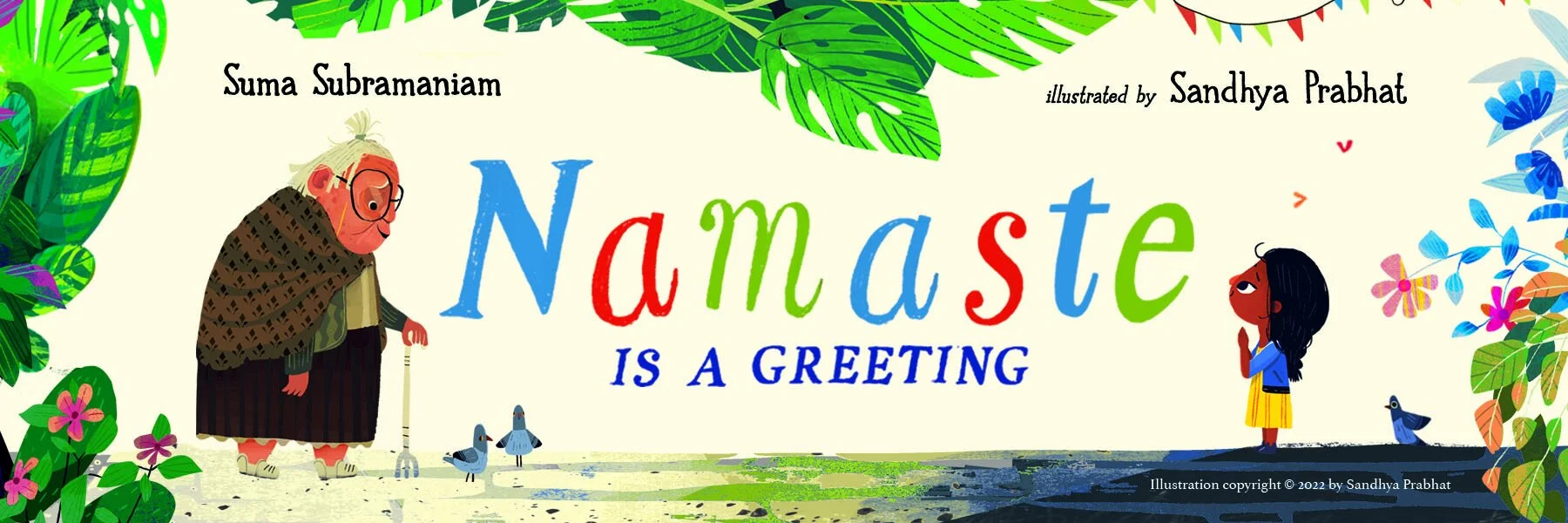Guest Post: Suma Subramaniam on Namaste is a Greeting
Honoring the Good by Suma Subramaniam
The objective of Namaste is a Greeting is to understand the meaning of the word “Namaste” and the value it can bring when it’s spoken verbally and expressed non-verbally. Namaste in Sanskrit is a combination of two words—namah, meaning “bow,” and te, meaning “to you.” Therefore, namaste is a greeting that means “I bow to you.”
The front door of Suma’s childhood home. Photo courtesy of the author
I grew up in a small apartment in Bangalore of South India where I came in contact with people from various religions, classes, and backgrounds. As a child, I bonded with my neighbors when we embraced our differences and came together to celebrate every holiday and festival.
In this book, I used the memory of my childhood and broke down the word into simple, everyday actions for children to practice. Sandhya Prabhat, my wonderful illustrator has brought this visual representation to the page through the eyes of a little girl who develops a bond with her elderly neighbor.
We live in a world with blended cultures, in which life is continuously changing. That means many of today’s children speak and learn more than one language or wear different hats at home and at school.
Teachers and librarians spend a lot of time building classroom communities that meet children’s social needs. Namaste is a way of showing each other that everyone is welcomed and seen. It is a caring practice, one that allows us to check on each other, that forgives, fixes our mistakes, and builds relationships.
Namaste is about honoring the good that we see in each other. It is about being kind to those who are like us and those who are different from us. Through this book, I encourage young readers to be explorers of what they can learn that they haven’t learned already. This story is also a call to action to observe and understand the deeper meaning of words that we don’t know very well and use them appropriately.


